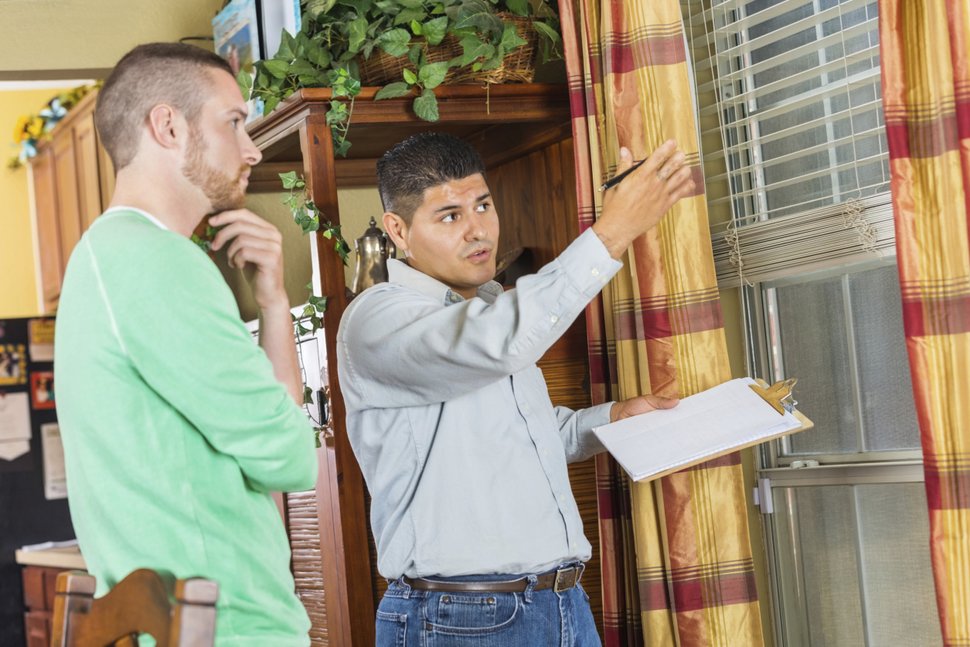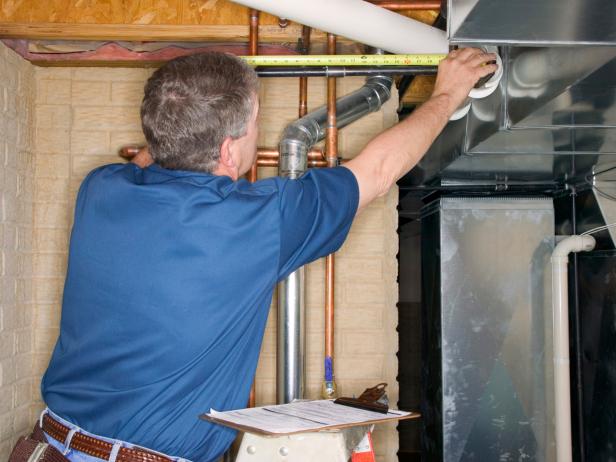How to Choose a Home Inspector
Shopping for a home? Don’t wait until you have an accepted offer to shop for a home inspector. You want to allow time to interview several candidates so that you can be sure to hire an experienced professional.
After all, a home inspection is your one opportunity to get a clear-eyed assessment about the true condition of something that, for many, is the most expensive purchase of a lifetime. Follow our advice for how to find good candidates and what to look for in an inspector.
Beware the Real Estate Agent’s Referral
Your real estate agent might offer to give you some home inspectors’ names. He may be perfectly well-meaning—or not—but the references present a conflict of interest.
A real estate agent wants to close the deal, and that incentive may be at odds with that of the inspector, who gets paid for his report. If the report raises too many issues, or serious ones, it can be used to negotiate a lower price or even scuttle the deal. An inspector who has been referred by your agent may feel obligated to go easy on the inspection.
Identify Qualified and Trusted Candidates
To find a reputable inspector, first ask friends who have recently purchased a home whether they recommend the person they used. You can also find referrals through local online communities such as NextDoor or Patch, where members sometimes post their experiences. A crowdsourced directory such as Yelp, and home services sites such as Angie’s List and HomeAdvisor, may also be helpful.

How to Select a Home Inspector
Choosing a home inspector is part of the home buying process, a decision that can have a significant impact on your satisfaction with your future home. The home inspector is responsible for telling you the things you need to know about the home you are interested in. His or her ability to spot potential issues is vital for you to make an informed purchase, one you will be happy with over the long-term. Knowing how to select a home inspector becomes paramount, especially for first-time buyers
You only need to do a quick search for home inspectors in your area to find numerous options, but as with so many professions, some inspectors are better than others. The following tips will help you find a home inspector that you can be happy with, someone you can trust to provide you with all the relevant facts about the home you want to buy.
Get a reference from your real estate agent.
One of the best resources for picking a home inspector should be your Realtor. Do you know your real estate agent well and trust them? Do you feel they have your best interests at heart and are not more concerned about their pocket book? If you can confidently answer these two questions in the affirmative, then there is no reason not to trust your Realtors advice on who to select as a home inspector.
Look for a company that is bonded and insured
Whether you go with a big company or a single inspector working on his or her own, you want to make sure that whoever examines the home is bonded and insured. Finding out about insurance is one of the most important questions to ask when interviewing a home inspection
Verify that the inspection company only does inspections – not home repairs and renovations.
Hiring someone that just does inspections is an important tip for finding the right home inspector! Home inspection companies that sell other services – such as roofing, plumbing, kitchen and bathroom renovations, etc. – have a conflict of interest. The fact that they sell repair and renovation services means they are more likely to see problems where there aren’t any.
Tips to Find the Best Home Inspector
Before you buy a home, it’s always a good idea to get a professional home inspection. In most cases, you can make your purchase contract contingent on a satisfactory inspection. That means if you don’t like the inspection results, you can cancel the contract, get your deposit back and walk away from the deal. Or you can negotiate with the seller to cut the price or make repairs to problem areas uncovered during the inspection.
Even if the results of the inspection mean you agree to accept the house as-is at the contract price, a good home inspection can give you valuable insights into the property you’re buying and help you plan for future maintenance and repairs.
Choose an inspector who wants you around during the entire inspection. “We recommend bringing the clients there during the inspection every single time from start to finish,” Saltzman says, rather than just showing up for the report at the end. “I don’t think the clients get as much out of the inspection if they do it that way.”
Ask for a sample report. “Any great home inspector should have their home inspection reports displayed on a website,” Saltzman says. See if the reports are clearly written and how they are formatted. Saltzman says a good report should identify the defect, explain why it matters and suggest what should be done to fix it. All good reports also include photos.
Read reviews on Angie’s List, Yelp and Google. You can ask inspectors for references and call past clients. But you should also read online reviews that the inspector doesn’t control to ensure accuracy.
How to Choose a Home Inspection Company
When a house is bought or sold, a home inspection is a necessary procedure that alerts both homeowners and buyers to the condition of the property in question. If you are selling a home, it is important to have an inspection conducted so that you will be aware of any potential issues with the home you are selling. If you are buying a home, you should have a separate inspection conducted to be sure there are no hidden issues, and to negotiate the contract with potential repairs or problems in mind.
Be prepared for the cost. The average fee for a home inspection is between $350-$500, but the information received from an inspector is priceless. It could be the turning point between a sale and a buyer going back to searching for the perfect home
Understand the actual inspection. Home inspectors enter a home and analyze all of the major components that make up a house purchase. Home inspection companies document the safety and overall condition of a home at the time of the inspection. Home inspections usually take about 3 hours for a minimal inspection, and 5 or 6 hours in order to arrive at a thorough, proper assessment. Depending on how old or large a house is, it may take longer or less time to complete.
Know what will be inspected. A home inspector must thoroughly conduct a review of the inner and outer areas of a house
Be prepared for bad news. It is a home inspector’s job to find any existing or potential problems with a house. They can lose their license if they fail to report issues, so although it might feel like they’re purposely giving bad news, be thankful for the information.

Finding the Right Home Inspector
If you are buying a home, an inspection could reveal problems you never would’ve noticed. An inspection can require the seller to fix what needs fixing before you buy the home. You could also find issues that make you decide not to buy. If you’re a seller, an inspection can help you find problems before you put the house on the market, letting you make the repairs without wrangling over the cost with a potential buyer. Learn why you should get an inspection before selling your home.
What to expect on inspection day
On the day of the inspection, the inspector performs an initial site evaluation. Then the inspector takes you on a tour to point out the assets as well as any potential problems. Pay attention, watch, ask questions and learn. A thorough inspection can find problems related to water entry, roof leaks, insect infestation, unsafe wiring, failed septic systems, poor plumbing, wet basements, mold and mildew, and safety hazards.
At the end of the inspection, you receive a written report detailing all the findings. The report should contain photographs and descriptions of any damage or defects found during the inspection as well as details on the location of damage. Pictures help you understand the scope and location of the damage, and visual proof makes it easier to get repair estimates.
Look for an inspector before you shop for a home. If you choose a home first, time is critical and you may feel pressured to pick the first inspector you meet
Do your research and ask lots of questions of prospective inspectors, including their backgrounds, the length of time they’ve been in the business, the number of inspections they’ve performed and what sort of report they’ll provide